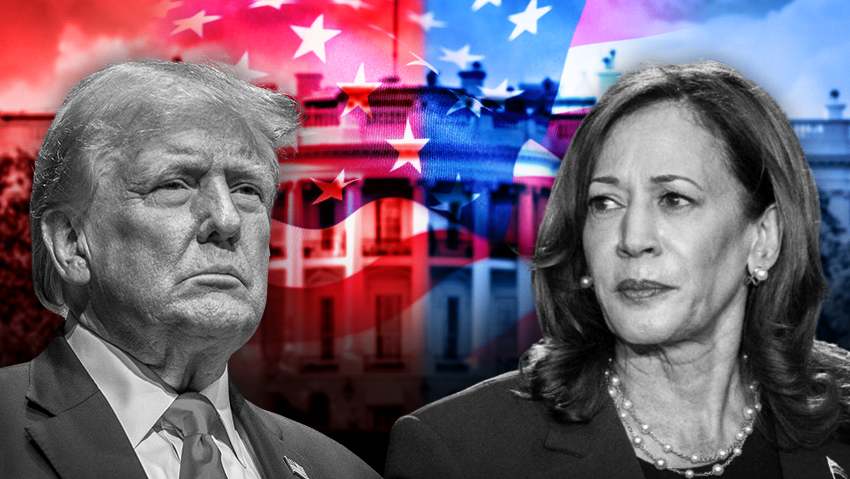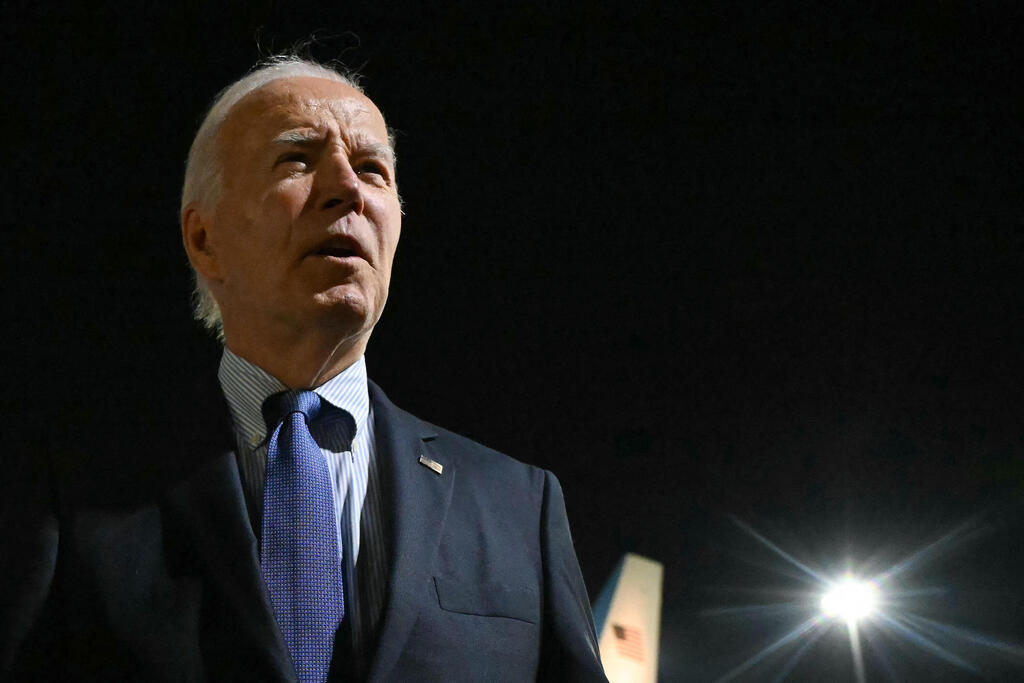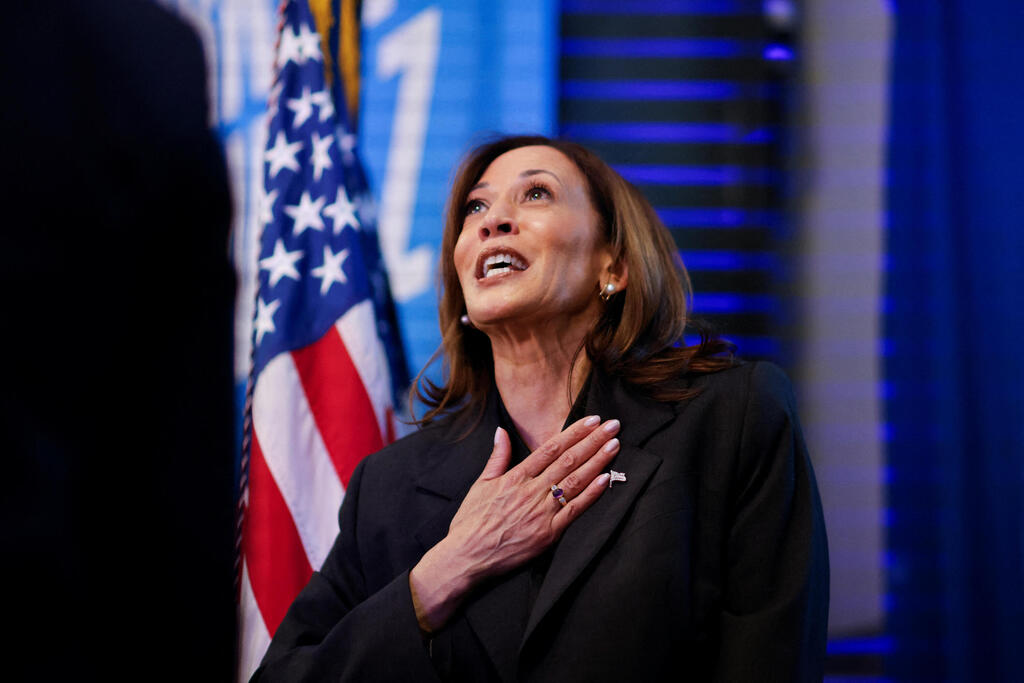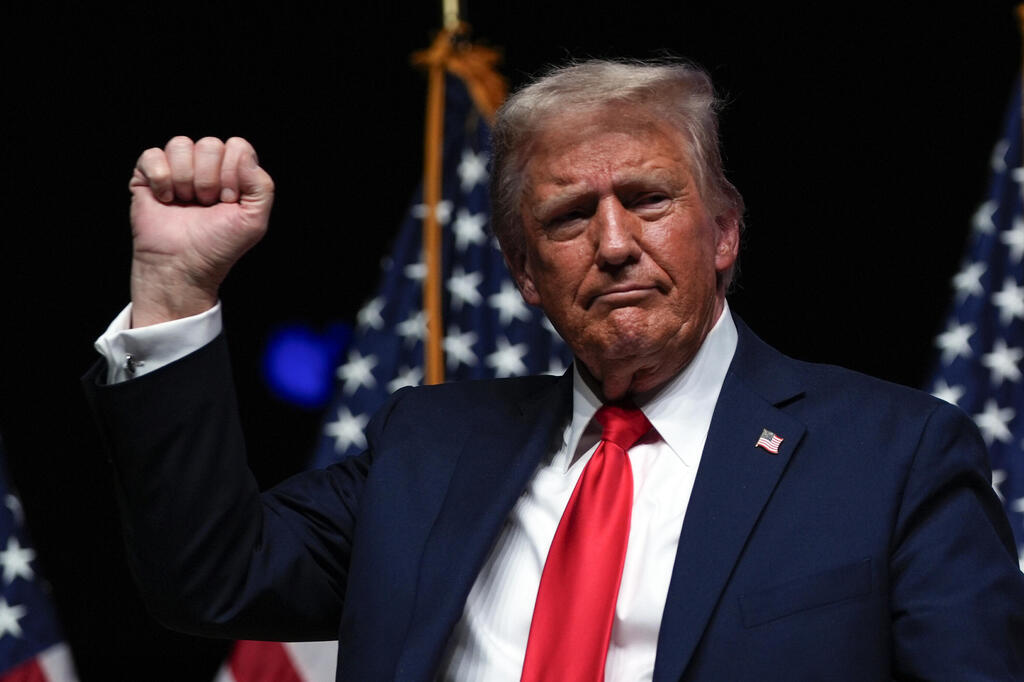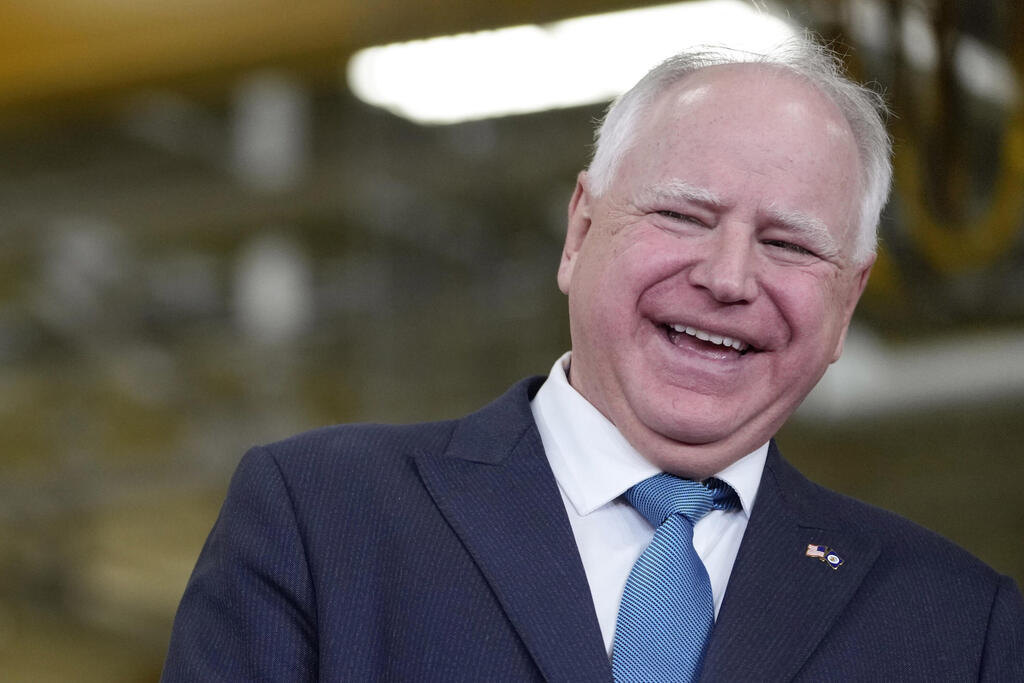With only a few days until the U.S. presidential election, it is still unclear who will win. Last week, some polls began to show former U.S. President and Republican candidate Donald Trump edging past Vice President and Democratic contender Kamala Harris, with a 54% chance of winning. However, "with the margin of error, this is still a very close race," Drew McCoy, president of Decision Desk HQ, told The Media Line. "The election will come down to turnout."
According to the latest Gallup Poll report, more than half (54%) of registered voters are expected to have voted by November 5. However, this is down from 64% in 2020, suggesting that more voters may cast their ballots in person this year — or possibly not show up at all.
"First, I cannot recall any election as close as this one," Eytan Gilboa, a professor of international relations at Bar-Ilan University and an expert on U.S. elections, told The Media Line. "Second, both candidates are very unpopular. Voters this time, more so than in previous elections, are voting against someone, not for someone. And when you vote against someone, it doesn't matter who is on the other side."
There is also extreme polarization between the Democratic and Republican parties, with voters barely agreeing on the most important issues. Although the economy is No. 1 for both sides, there are several other critical issues on the table that only Republicans or Democrats prioritize, such as immigration, abortion, or democracy.
When it comes to the economy, people often don't seem to remember what actually happened during Trump's first term; instead, they recall a time when the economy was better and inflation was lower, according to Prof. Benjamin Miller of the University of Haifa. Trump presents himself as a billionaire, which projects an image of economic expertise. On the other hand, Harris lacks a strong record in financial affairs, leading to lower public trust in her economic management skills.
Pro-Trump voters expect him to address issues at America’s southern border with Mexico related to illegal immigration. Pro-Harris voters, meanwhile, are concerned about the anti-abortion laws implemented since the reversal of Roe v. Wade, which was influenced by Trump's appointment of conservative judges to the Supreme Court. Harris voters are also focused on preserving democracy; Harris has accused Trump of being a fascist and argues that only she can safeguard the country's democracy and commitment to civil and human rights.
Another major factor is foreign policy. According to Miller, Harris aims to continue America's "grand strategy since World War II," positioning the U.S. as a global leader committed to its allies, particularly NATO. On the other hand, Trump takes a more unilateral or isolationist approach, which could mean discontinuing support for Ukraine and potentially abandoning NATO.
Are Jews and Muslims shifting their loyalties?
Israel, the Gaza war, and the potential for a regional escalation involving Iran are also factors for U.S. voters this year.
In Israel, where most people can't vote in the U.S. election, many favor a Trump victory. A recent poll by Israel's Channel 12 showed that 66% of Israelis support Trump, while only 17% support Harris.
In contrast, a Jewish People Policy Institute (JPPI) survey found that 63% of American Jews plan to vote for Harris. However, this represents a drop in support from the Jewish community compared to Biden in 2020. Meanwhile, 24% of American Jews plan to vote for Trump, with 95% of Trump supporters citing his pro-Israel stance as the primary reason. Over 90% of these supporters believe a Trump Administration would strengthen U.S.-Israel relations, according to JPPI.
A majority of Americans (56%) feel the current Biden Administration does not adequately support Israel. For Harris supporters, however, the survey showed that Israel is less central, with only a third listing it as a key voting issue.
Meanwhile, the American Muslim community, which has historically supported Democratic candidates, is also shifting away from Harris. This year, for the first time in documented history, Michigan's Council on American-Islamic Relations is not endorsing a Democratic candidate. Michigan, home to the country's largest Arab American constituency — around 250,000 Muslims, nearly half of whom are eligible to vote — has seen mixed reactions, with some planning not to vote and others leaning toward Trump, according to a recent Reuters report.
Similarly, younger, progressive Democrats critical of Harris's support for Israel are moving away from her. The Reuters article suggested many of these voters plan to cast protest votes for Green Party candidate Jill Stein.
A survey by the AP-NORC Center for Public Affairs Research revealed that many U.S. voters are concerned that the Middle East conflict could escalate into a broader regional war. Miller noted that the public perceives Trump as more "hostile to Iran," which has orchestrated and funded much of the proxy war against Israel. Trump's decision to withdraw from the Joint Comprehensive Plan of Action nuclear deal with Iran when he was president is seen as indicative of his hardline stance.
"One of Trump's arguments during this election campaign was that while he was in office, there were no major wars," Miller added.
Is America ready for a female president?
In a country that prides itself on gender equality, gender is unexpectedly playing a significant role in this election.
"Another issue is whether or not the United States is really ready for a woman president," Gilboa told The Media Line.
Looking at the polls, about 80% of African American women plan to vote for Harris, but fewer than 50% of African American men say the same. The Harris campaign has even adopted a slogan, "Be a man, vote for Harris," which, according to Gilboa, suggests they recognize her struggle to gain support from men — whether white, Black, or Hispanic — despite Harris being a minority herself.
Miller agreed. He explained that Trump's core supporters are white working-class voters, but he has recently gained traction among minority voters, particularly Latino and African American working-class males. For many of them, "the idea that a woman, let alone a woman of color, could be president is hard to absorb."
Voter turnout: The deciding factor for the White House?
According to the U.S. Census Bureau, the 2020 presidential election saw the highest voter turnout of the 21st century. Some 66.8% of citizens 18 and older voted. According to Decision Desk HQ's McCoy, voter turnout, at least in numbers if not percentage, is expected to be similar this year.
In recent history, higher turnout has tended to favor Democrats, but McCoy noted this trend has shifted somewhat toward Republicans.
"Now, the Republicans want higher turnout, and the Democrats might want lower," McCoy said. "If you start to see higher turnout levels, that could benefit Trump and the Republicans."
There are seven key swing states to watch: North Carolina, Georgia, Pennsylvania, Wisconsin, Michigan, Arizona and Nevada. In most of these, polls show both candidates running neck and neck, with a slight Trump advantage in Georgia, North Carolina, Arizona, and Nevada.
"Based on where things are now, there is a chance that those seven states — or at least five of the seven — go to one candidate," McCoy said. "North Carolina, Georgia, Wisconsin, Michigan, and Pennsylvania are highly correlated."
Wisconsin, Michigan, and Pennsylvania have voted together since 1988, but this year is more of a toss-up. Analysts are watching closely to see if these states will stay aligned or diverge.
McCoy explained that Harris's most straightforward path to the White House is to retain as much of the 2020 map as possible. This means she could lose North Carolina, Georgia, Arizona, and Nevada as long as she holds Wisconsin, Michigan, and Pennsylvania to secure the 270 electoral votes needed.
If Trump retains North Carolina, as he did in 2020, and flips Georgia and Arizona in his favor, he could also reach 270.
McCoy noted that Pennsylvania is particularly close. Harris had the chance to select a Jewish vice-presidential candidate from Pennsylvania, which has the most electoral votes of any swing state, but she chose Tim Walz from Minnesota instead.
"There is a lot of discussion about how much of a home-state advantage a candidate like [Pennsylvania Governor] Josh Shapiro would have," McCoy said. "However, if Donald Trump wins Pennsylvania, people will certainly question it."
With just a few days left, the candidates are making last-minute efforts to sway undecided voters. Harris is working to attract Republicans who oppose Trump and is appealing to evangelical Christians — Trump's core base — to remind them that "he is not a moral person, not a family man," Gilboa said.
Meanwhile, Trump is reaching out to American Muslims with messages focused on the economy and a stable Middle East.
Who will be more convincing? The world will have to wait until Tuesday to find out.
Get the Ynetnews app on your smartphone:



